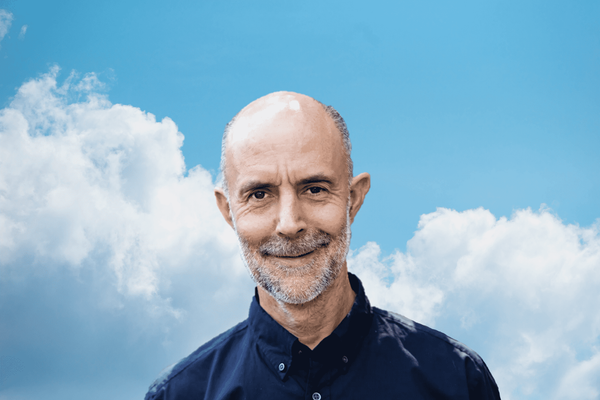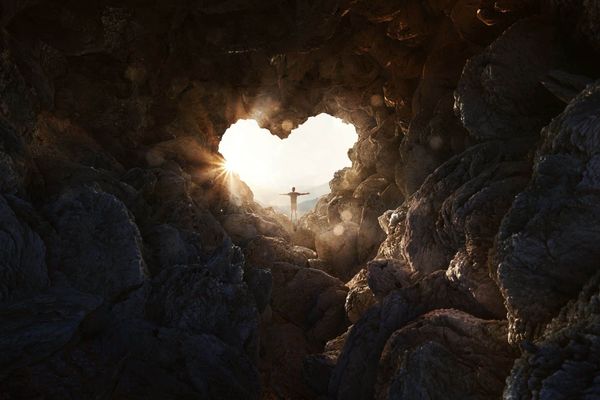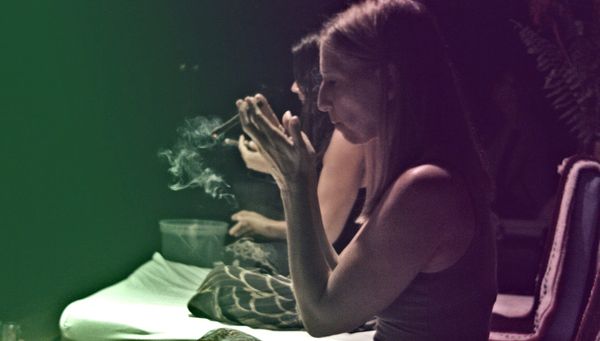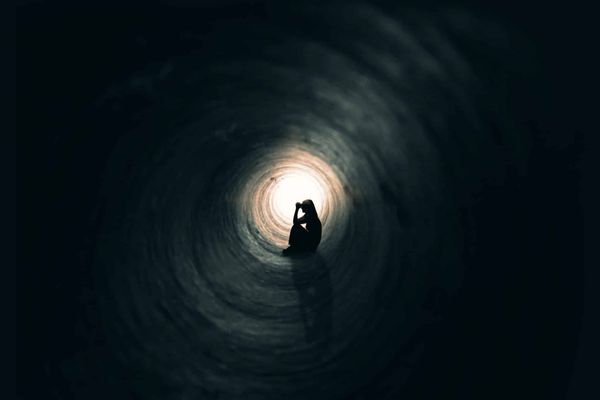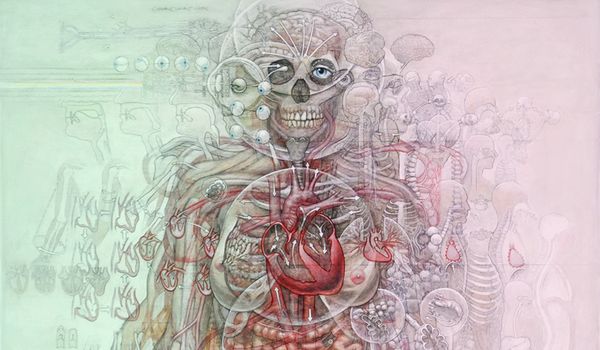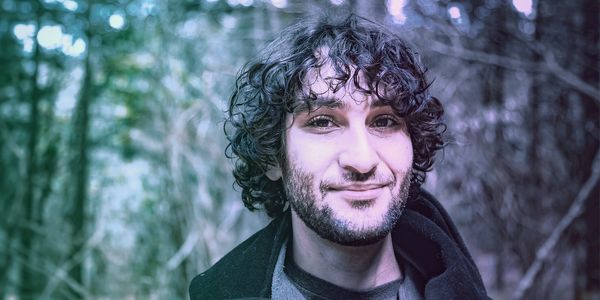Nat Dollin • • 7 min read
Consolations from the Forest: Life-Altering Wisdom from Six Months Alone in a Siberian Cabin
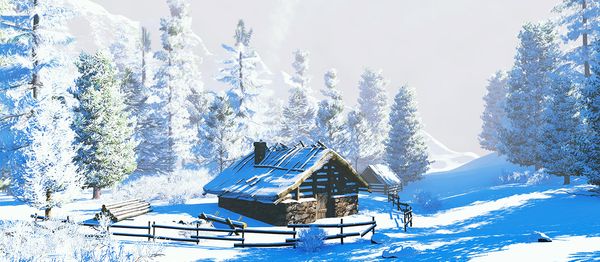
“I am poised on the gangway. I will finally find out if I have an inner life.”
In February of 2010, philosopher-writer Sylvain Tesson took a hiatus from his fast-paced city life and headed for a small cabin on the banks of Lake Baikal in Russia. With a hearty supply of pasta, tabasco, vodka, and Nietzsche, Tesson embarked upon the impressive 3-day journey from Irkutsk to the western shores of the deepest lake in the world, where he planned to spend six months in solitude. His consequent book, Consolations of the Forest, is a collection of journal entries written during that time, not to mention an inspiring and galvanizing peek into the vast realm of retreat.
If his reasons for going sound familiar, or at the very least intriguing, you too may be prime for a retreat of your own:
I talked too much
I wanted silence
Too behind with my mail and too many people to see
I was jealous of Crusoe
It’s better heated than my place in Paris
Tired of running errands
So I can scream and live naked
Because I hate the telephone and traffic noise
But before we get into some sage yet refreshingly unabashed admissions from this intrepid explorer, let’s address the pertinence of ‘the retreat’ with relation to our own lives.
The Need for Retreat
Our modern world is dynamic, thrilling, and full of potential. Our modern world is also incessant, confusing, and rife with conflict. Although retreating is a centuries-old concept, civilization as it currently stands offers certain conditions from which it may be wise to periodically step back. For those who may feel that stepping back implies a certain ignorance of responsibility—a mere entertainment of fantastical whim—I offer Maria Popova’s words as comfort; “we inhabit the world more fully by mindfully vacating its mayhem.”
It’s not a question of turning our back on the world, but of creating the necessary foundations from which to turn our heart towards it. By periodically stepping away, suggests travel writer Pico Iyer, we can “see the world more clearly and love it more deeply.” Who doesn’t want to see more clearly and love more deeply?!
So many of our interactions are shrouded by adopted stories, context, and a heavily-influenced narrative. But if we give ourselves a chance to shed those strongholds, we liberate our ability to view people, places, and situations as they actually are.
That chance is offered through the paradigm of ‘the retreat,’ where isolation, simplicity and silence intersect to form the bedrock of awareness. Silence is now a rare and valuable commodity which, coupled with extended time, can unveil extraordinary (and typically dormant) creativity within each of us. Sometimes it arises from a heightened connection with our natural surroundings, or perhaps from inhabiting a space without distractions. In any case, the revelations are often profound and life-changing.
Creating Your Own
There are as many different forms of retreat as there are individuals in the world, and if you can’t find one in existence that works for you, create one of your own. If 6 months in Siberia doesn’t sound appealing to you, consider why that may be, and work on your design from there. My favourite retreat so far is also the most humble I’ve experienced. During a busy period of work, when 6 months on hiatus wasn’t a possible—or even desirable—option, I found a little hut for €20 a night on Airbnb and took off for two days.
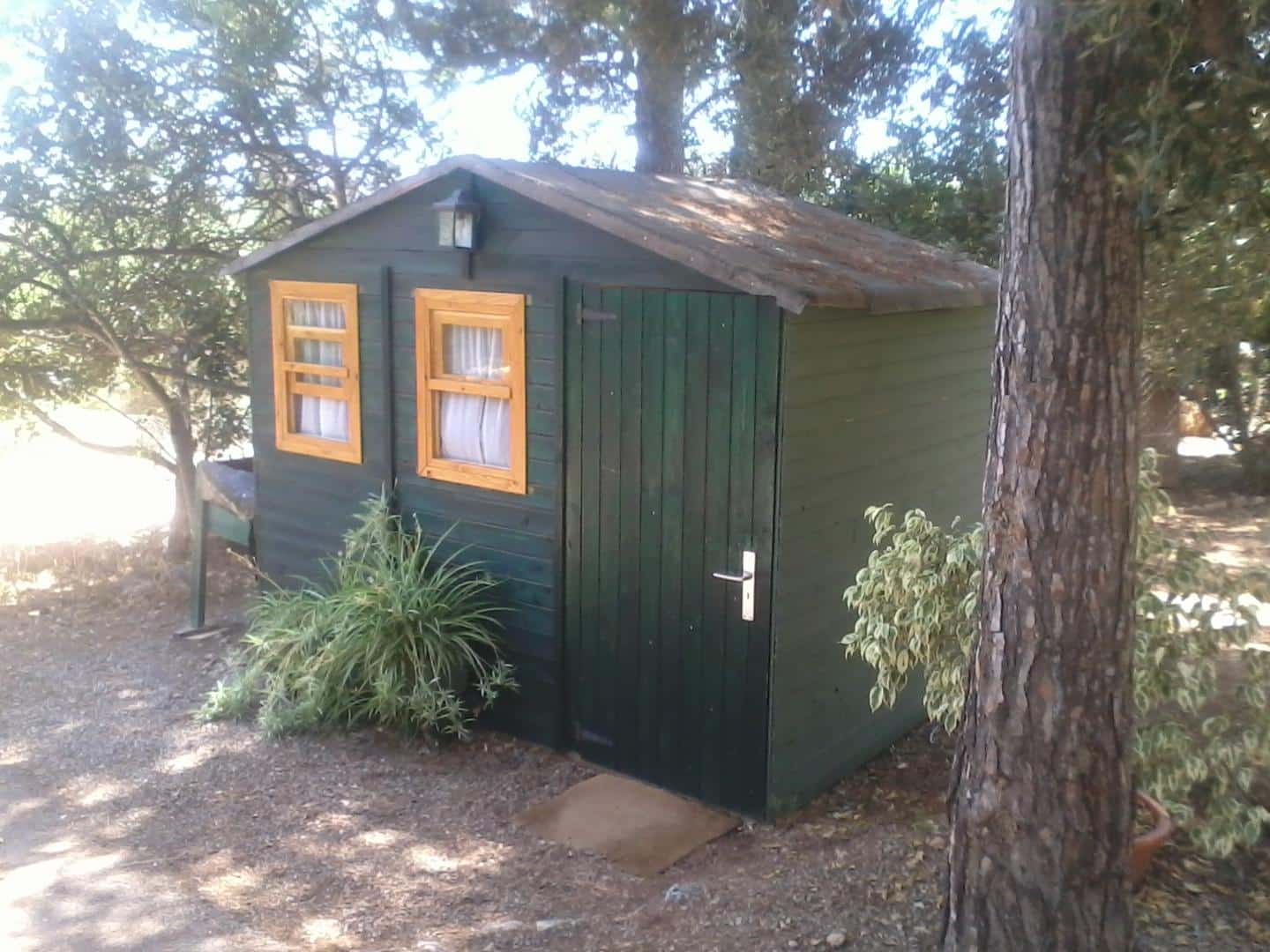
It was as simple as simple gets, and yet totally supportive of what I was seeking for that time. It housed a single bed, a small table with a lamp, a chair, and a rug. There were three windows, through which the dappled sunlight could stream, and no internet access. There was no lock on the door and no bathroom (access to a toilet was available up the hill and through the forest, through a back door of my host’s home). I didn’t have a vehicle of my own at the time, and when a friend dropped me off for the weekend, he took one look inside my little hut and said, “You’re crazy,” shaking his head. “Why don’t you just come and stay at my house for the weekend? What are you even gonna do here?”
Precious little, as it turned out. Precious being the pertinent word. Even though two days might not sound like a lot, it stretched out beyond all recognition in the absence of distraction, and every minute became beautiful. I would wake up naturally, with the sunrise sifting in through the mesh curtains. I would meditate outside, filling my nostrils with the fresh scent of pine needles and becoming ever more aware of Mother Nature’s soundtrack. I would head up through the forest, and end up walking for hours without knowing where I was or how long it would be before I got “home.” I would read a little, think a little, and even, sometimes, unwittingly find myself smiling! The stars would be out in full force each night, viewable through a clearing in the canopy of treetops, and I would fall asleep to the timeless sound of cicadas. It was peaceful and filled me with a calming sense of assurance. I returned to my usual life a little quieter, a little more confident, and a lot more alert. I had renewed my tools for “[inhabiting] the world more fully.”
Pico Iyer’s TED Talk on The Art of Stillness perfectly summarises our collective need for retreat:
“In an age of acceleration, nothing can be more exhilarating than going slow. And in an age of distraction, nothing is so luxurious as paying attention.”
Now, let’s return to Tesson, that bold Frenchman who ventured alone into Siberia in search of something modern urban life could not provide.
Excerpts from Consolations of the Forest
If you want to increase your capacity to pay attention, live deliberately, and act honestly, reflect upon the following insights, observations, and cautions written by Tesson during a time of complete and utter solitude. Consider them your invitation to embark upon your own, personalized retreat.
“There is consolation in wildness.”
“The future of humanity would lie in ‘the complete union of the civilised with the savage.’ There would be no need to choose between our hunger for technological progress and our thirst for unspoilt places.
Life […] offers an ideal terrain for this reconciliation between the archaic and the futuristic. An eternal existence unfolds beneath the treetops, literally at one with the Earth.” (Ref: Élisée Reclus)
“[Bruce Chatwin wrote,] ‘The art of civilisation consists in combining the most delicate pleasures with the constant presence of danger.’”
“In Paris I never dwelled much on my state of mind. Life wasn’t conducive to tracking the seismographic data of the soul. Here, in the whited-out silence, I have time to perceive the nuances of my own tectonics. The hermit faces this question: can one stand living with oneself?”
“Solitude fosters thought, since the only conversation possible is with oneself. It sweeps away all chitchat, allowing the sounding of one’s self.”
“Rainer Maria Rilke writes ‘If your daily life seems poor, do not blame it, blame yourself that you are not poet enough to call forth its riches.’
We alone are responsible for the gloominess of our lives. The world is grey because of our blandness. Life seems pallid? Change your life, head for the cabins. In the depths of the woods, if life remains dreary and your surroundings unbearable, the verdict is in: you can’t stand yourself! Make the necessary adjustments.”
“Sometimes revelations rise from the depths of our own being. Instead of quivering before the signals of the world, we sense an inner impulse, the birth of an idea, an overwhelming desire. Then we feel like a world in ourselves, where gods and demons are locked in battle.”
“The [sauna]; allegory of our lives spent in the perpetual pursuit of improvement. We push through the door, thinking to reach happiness, but quickly head back where we came from, which soon oppresses us afresh.”
“Life should be nothing but this: giving constant thanks to fate for the slightest blessing. Being happy is knowing that you are.”
“The less direction his life had, the more sense it made.”
“But please note! Chinese non-action is not sloth. Non-action sharpens all perception.”
“By restricting the panoply of actions, one goes deeper into each experience. […] Existence becomes reduced to a dozen or so activities. The castaway enjoys absolute freedom – but within the limits of his island.
He understands that he will not escape and, at peace, discovers that limitation brings joy.
He is then said to resign himself. Resigned, the hermit? No more than the city dweller who, haggard, suddenly realizes beneath the twinkling lights of the boulevard that his whole life will still not be enough for him to sample all the attractions at the party.”
“Characteristics of Castaways:
— The need to constantly confirm the merits of the solitary life by insisting to oneself at every occasion on the beauty of such an existence.
— The contradictory wavering between the hope of prompt rescue and revulsion at any contact with one’s fellow man.
— An insistence on strictly regulating varying periods of action, meditation and leisure.
— The slightly euphoric feeling of playing the role of an observer or watchman on the margins of a humanity gone astray.
— The risk of contracting the ‘ivory tower syndrome’, which in its extreme form leads the castaway to see himself both as the repository of universal wisdom and the redeemer of the sins of mankind.”
“Alas, one cannot bathe in the same lake twice. The satori cannot ever be repeated. A hierophant – a physical manifestation of the sacred serving as spiritual inspiration – visits us only once. Madeleines cannot be reheated. And the shores of the Baikal are now too familiar to me to draw the slightest tear from my eye.”
“This evening, the snow is still falling. Watching it, the Buddhist says, ‘Let’s not expect any change;’ the Christian, ‘Tomorrow will be better’; the pagan, ‘What does all this mean?’; the Stoic, ‘We’ll see what happens’; the nihilist, ‘Let it bury everything’; and I say, ‘I’ll have to cut some wood before the woodpile gets snowed under.’ Then I put another log in the stove and go to bed.”
—
Find further inspiration for cabin retreating here, and deepen your appreciation for the interdependence of love and solitude here.
—
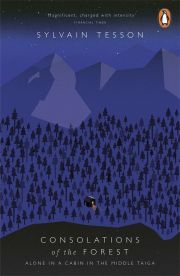
Consolations of the Forest by Sylvain Tesson
Consolations of the Forest is artfully written, humorous and engaging, both as a philosophical exploration and a story in its own right. Tesson also graces us with his own ‘Reading List’ for 6 months in the forest, which serves as further inspiration for those looking to expand their bookshelves. I highly recommend reading the text in its entirety.

